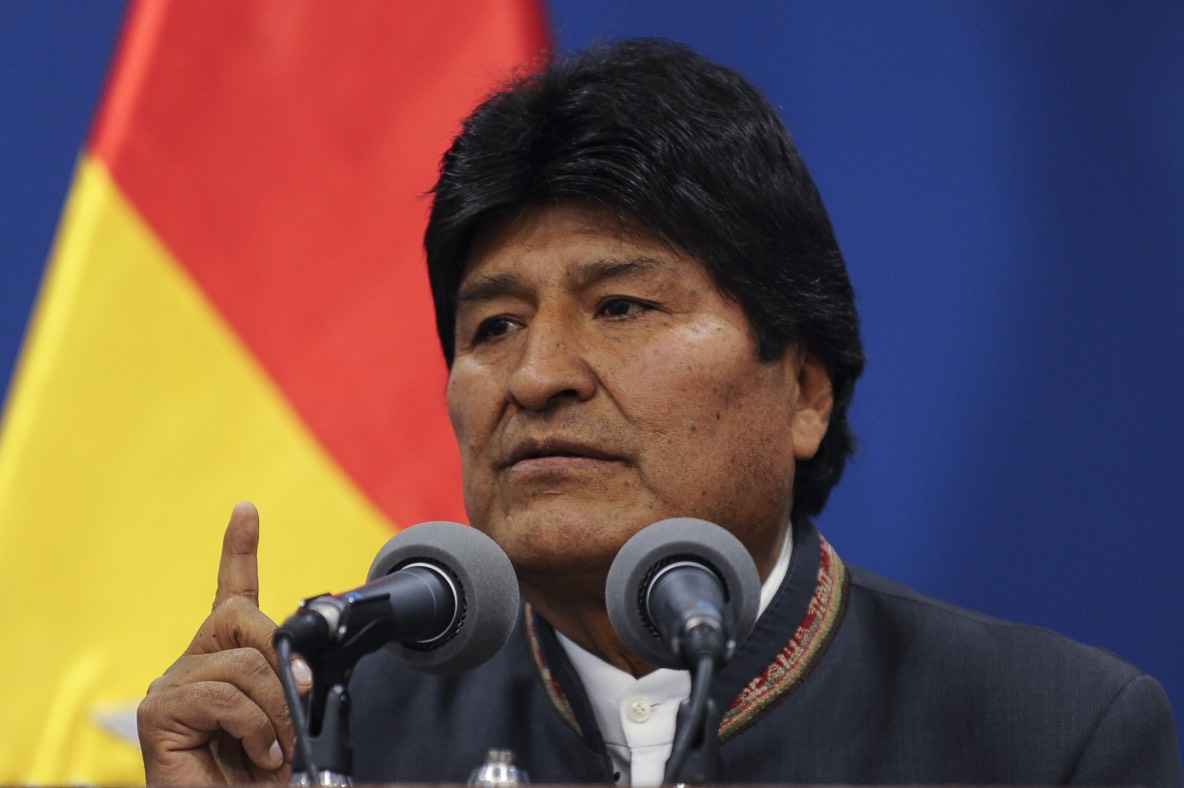The fall of Evo Morales: how did the ‘pink tide’ change Latin America?
Bolivian president's resignation brings to an end an iconic era

A free daily email with the biggest news stories of the day – and the best features from TheWeek.com
You are now subscribed
Your newsletter sign-up was successful
After resigning yesterday, Bolivian President Evo Morales, the last serving member of the ‘pink tide’ of left-wing leaders that began to sweep Latin America two decades ago, has travelled to Mexico where he has been granted asylum, the Mexican foreign minister has announced.
Earlier in the evening Morales tweeted a farewell, but pledged he would soon “return with greater strength and energy”.
Morales stepped down after 14 years in power after the head of the army publicly called on him to leave his post amid turmoil following his disputed re-election last month.
The Week
Escape your echo chamber. Get the facts behind the news, plus analysis from multiple perspectives.

Sign up for The Week's Free Newsletters
From our morning news briefing to a weekly Good News Newsletter, get the best of The Week delivered directly to your inbox.
From our morning news briefing to a weekly Good News Newsletter, get the best of The Week delivered directly to your inbox.
The resignation “polarised governments across the region, with presidents from Venezuela to Argentina denouncing a ‘coup’ and others cheering his exit”, Reuters says.
The “leftist icon” was “the last surviving figure from the Latin American ‘pink tide’ that brought leftwingers to power across the region around the turn of the 21st century”, The Guardian says.
What was the pink tide?
The pink tide began with Hugo Chavez's election as president in 1999, and saw the Peronists take power in Argentina 2001. The United Socialist Party of Venezuela took the reins in 2007.
A free daily email with the biggest news stories of the day – and the best features from TheWeek.com
During this trend, the Workers' Party took office in Brazil, Rafael Correa and his PAIS alliance ruled in Ecuador and Morales ruled Bolivia.
What brought it about?
According to The Press Project, these left-wingers came to power “on a wave of discontent against the neoliberal policies that were implemented by national governments across the continent”.
A major cause of unrest was the anger caused by the economic policies championed by the United States and international financial institutions during the 1990s, including privatisation.
Was it a success?
Admirers of the pink tide say the shift prompted more progressive economic policies and bolstered democracy across Latin America.
However, many of these parties “have been accused of financial scandals and corruption, and of manipulating state institutions for their own political ends”, the BBC says.
The tide was followed by a trend back towards more right-wing regimes, known as the conservative wave, which began five years ago.
Economic turmoil was a factor in the demise of the left-wing era. The pink tide “coincided with one of the biggest economic expansions in Latin American history,” says The Nation.
“Its engine was one of the largest commodities booms in modern times. Once the boom ended, in 2012 - largely a consequence of a slowdown in China’s economy - economic growth in Latin America screeched to a halt.”
More broadly, however, some of the pink tide regimes ran successful nationalisation programmes, redistributed wealth and boosted social welfare. Many commentators believe they also helped make Latin America more inclusive.
–––––––––––––––––––––––––––––––For a round-up of the most important stories from around the world - and a concise, refreshing and balanced take on the week’s news agenda - try The Week magazine. Get your first six issues for £6–––––––––––––––––––––––––––––––